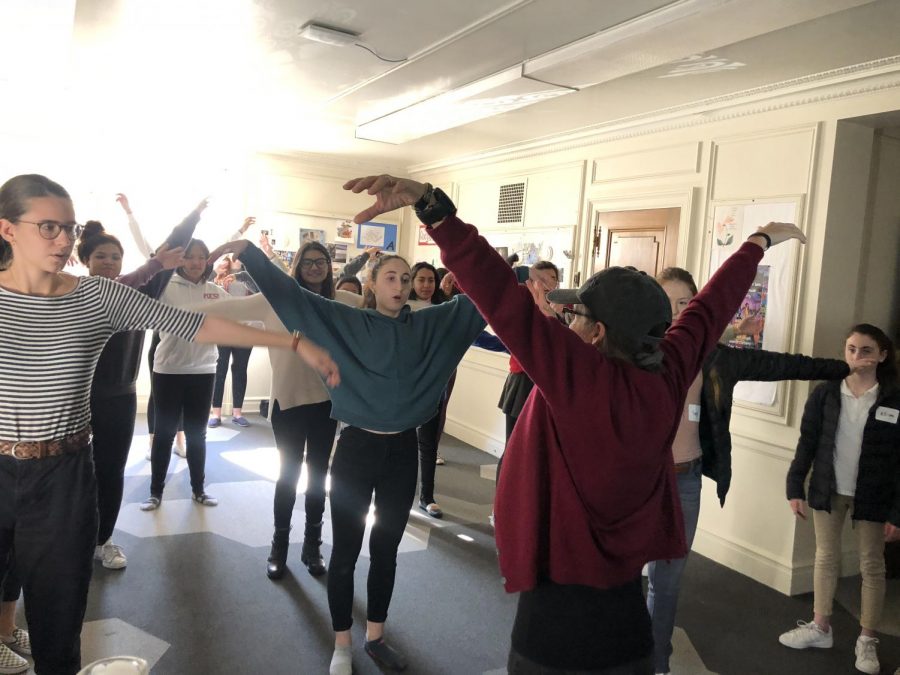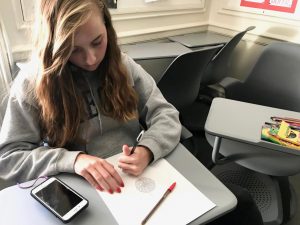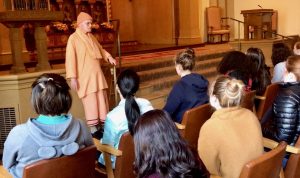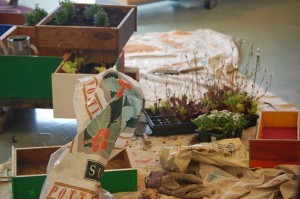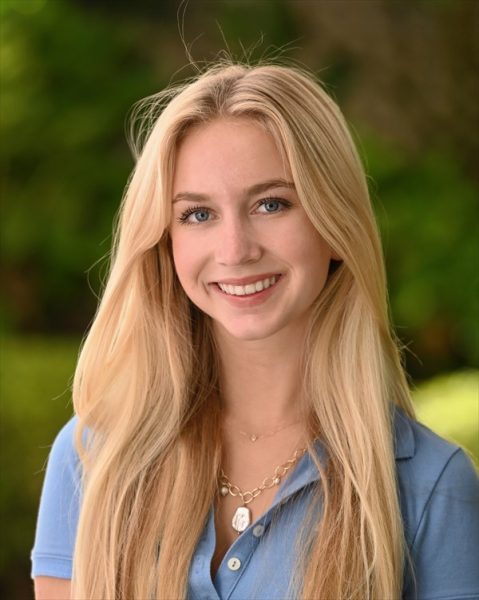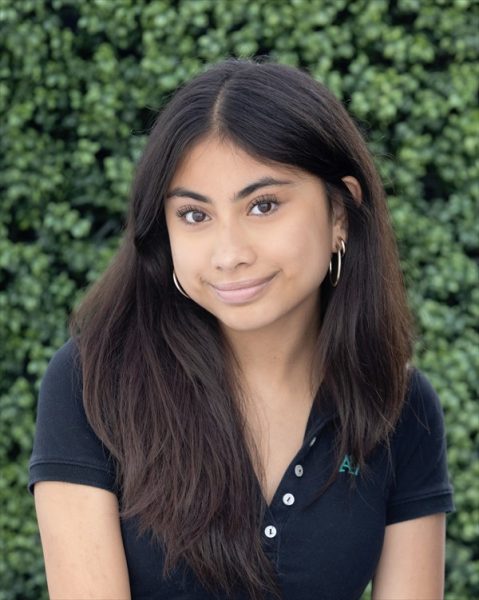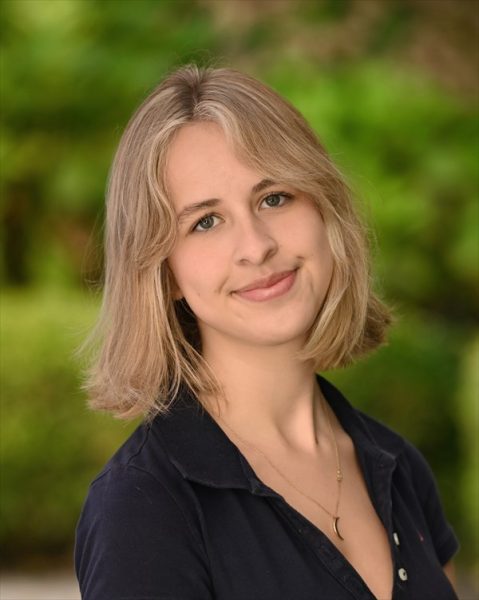Sophomore Class learns QiGong
Theology teacher Katherine McMichael leads her sophomores through a QiGong movement. The practice focused on taking energy from the five elements on Earth, and is said to allow energy to flow through the body.
December 6, 2017
WEB EXCLUSIVE Sophomores spent their World Religions class practicing QiGong, an Eastern self-healing practice, to wrap up their unit on Taoism.
“This practice helped me understand the unit because it let me experience a part of Taoism,” sophomore Annabelle Applegarth said. “It was helpful to be immersed in their culture and to actually take part in their practices.”
QiGong uses a series of slow movements paired with deep breathing rhythms and is a part of ancient Chinese tradition.
“Elements of QiGong have been practiced in China for thousands of years,” theology teacher Katherine McMichael said. “It is deeply relaxing, and it reconnects practitioners with the natural world.”
McMichael lead sophomores through forms she learned in her own practice of QiGong, with a focus on unblocking the flow of qi (energy) in the body in order to return the mind and body back to balance.
“I lead the class through movements that began with a warm-up, a focus on the yin organs, followed by a handful of forms,” McMichael said. “I chose some of the forms specifically for alleviating stress and building up the immune system, both things we can all use at this point in the semester.”
The healing system has deep roots in Taoism and Buddhism, two religions that are a part of the World Religions course, and participating in a part of another culture allows students to have a more real connection to what their learning, according to McMichael.
“Learning about QiGong was really interesting, but actually doing it helped me understand the practice,” sophomore Maeven McShane said. “I could feel the energy flowing through me.”
During the World Religions course, students were offered opportunities to take part in different physical practices of each religion they learned about.
“There is certainly a value to learning about unfamiliar religions or cultural practices by reading about them or watching a movie,” McMichael said. “As Zen Buddhism teaches: it’s not enough to simply learn about things, sometimes we need to actually experience them.”



